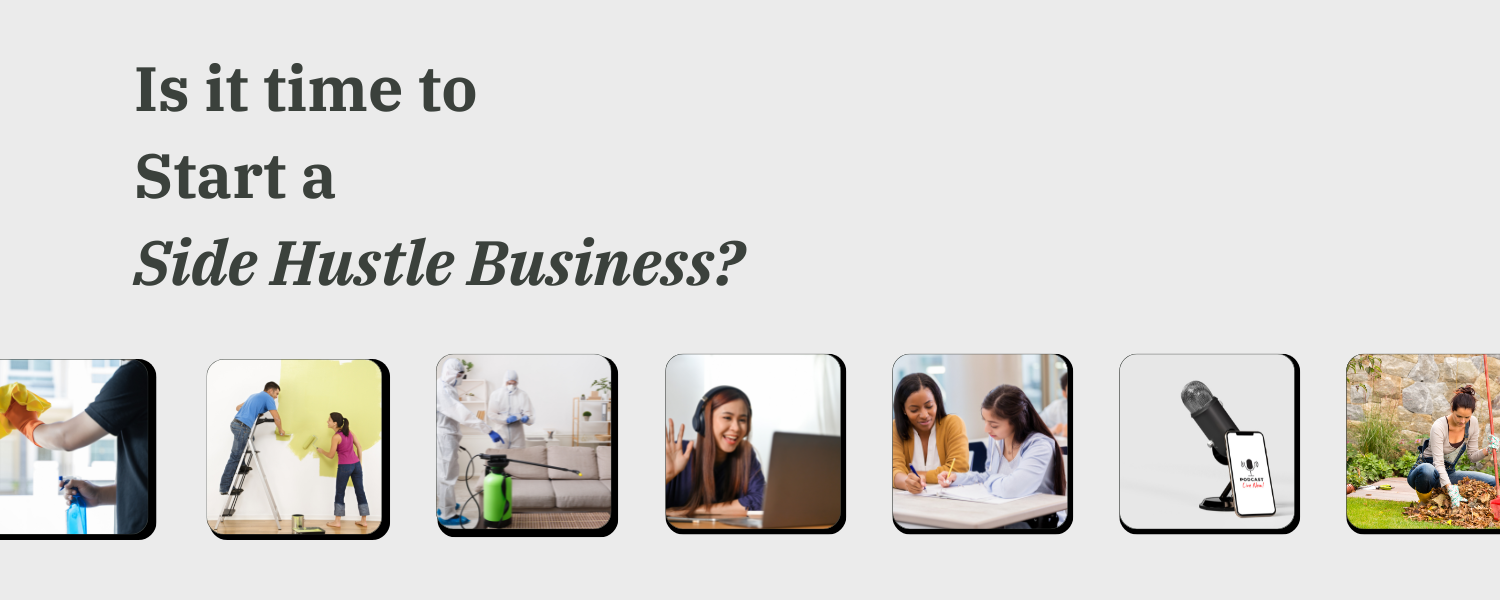Around the world, millions of workers are being drawn to the side hustle trend. It’s a trend worth hopping on, especially with its attractiveness of prospective career pathways into new industries, the alluring promises of endless passive income, and the chances to turn away from the well-trod road of standard corporate employment and explore one’s skills.
According to Luisazhou, “Side hustlers who dedicate 12 hours per week to their business earn a median of $1,122 per month”
But, because something is in style sometimes doesn’t mean you’re ready for it. We make the mistake of starting our professional careers too soon and end up hurting ourselves more than helping ourselves by going down a path of discouragement, stress, and needless loss.
When is the right time for you to start working on your second job? Here are five simple signs, or a checklist, that show you if you should launch your side project now or if you should hold off until those conditions are met:
1. Time Commitment
Examine your time management—or lack thereof—and consider how you may get better at it so that you can juggle your side project without sacrificing the obligations of your primary work.
Check your weekly routine and reserve times in your calendar that allow you to work on developing your side business within a reasonable amount of time. If you have a few hours to spare, you may make the most of it by networking, making contacts, creating a freelance profile on a website, or even creating a website of your own.
2. Genuine Passion
Having real excitement, energy, interest, and love for their work and subject matter is a crucial characteristic for any successful entrepreneur, regardless of their work schedule. There are two key reasons this is important.
First of all, juggling the obligations of a full-time job with the demands of a side hustle can be challenging. The perseverance and tenacity required to see your side project through difficult times will diminish if it’s something you’re not passionate about, which will have a negative influence on its success. Second, it is evident to stakeholders and customers that someone lacks passion, which will affect the calibre of your work and make clients less self-assured.
3. Market Gap
Have you observed a real need for what you can provide? We approach the notion of launching a side hustle business backwards: after coming up with the idea, we research the market to determine if there is a need for it. Because we’re pushing something that isn’t in demand, this will fail.
How about attempting the opposite? Once the need has been identified, pinpoint a solution that best suits your skill set. You’re acting too soon if there isn’t a demand or a gap in the market, or if you haven’t taken the time to investigate and find out if one even exists.
4. Finances
Are you in a comfortable financial position? It is possible to start a side business on a low income, but it can be tougher and much more stressful, and you might end up coming across as too “salesy” because you are desperate.
Start as soon as possible when you have a full-time job so you have cash cushioning for both your venture and yourself.
5. Skill Set and Mindset
Your skill set and mindset are the last two things you should think about before starting your side hustle. A strong skill set is necessary, as the technical know-how required to complete the task at hand. You’ll also need soft skills like confidence, active listening, interpersonal skills, and communication to see your project through. But without the correct mindset, abilities are nothing.
To balance your side business with the responsibilities of your personal life and your employment, you need to have an entrepreneurial attitude. This involves thinking strategically, setting goals, and allocating your time. You also need to have an innovative attitude that doesn’t hesitate to take chances or hunt for answers in unusual places. This kind of thinking, along with perseverance and hunger, will position you for success.
Conclusion
With these five components in place, you can position yourself for a fulfilling career that, while not without setbacks, will still allow you to live comfortably despite rising living expenses and guarantee that your work is both financially and emotionally fulfilling.

